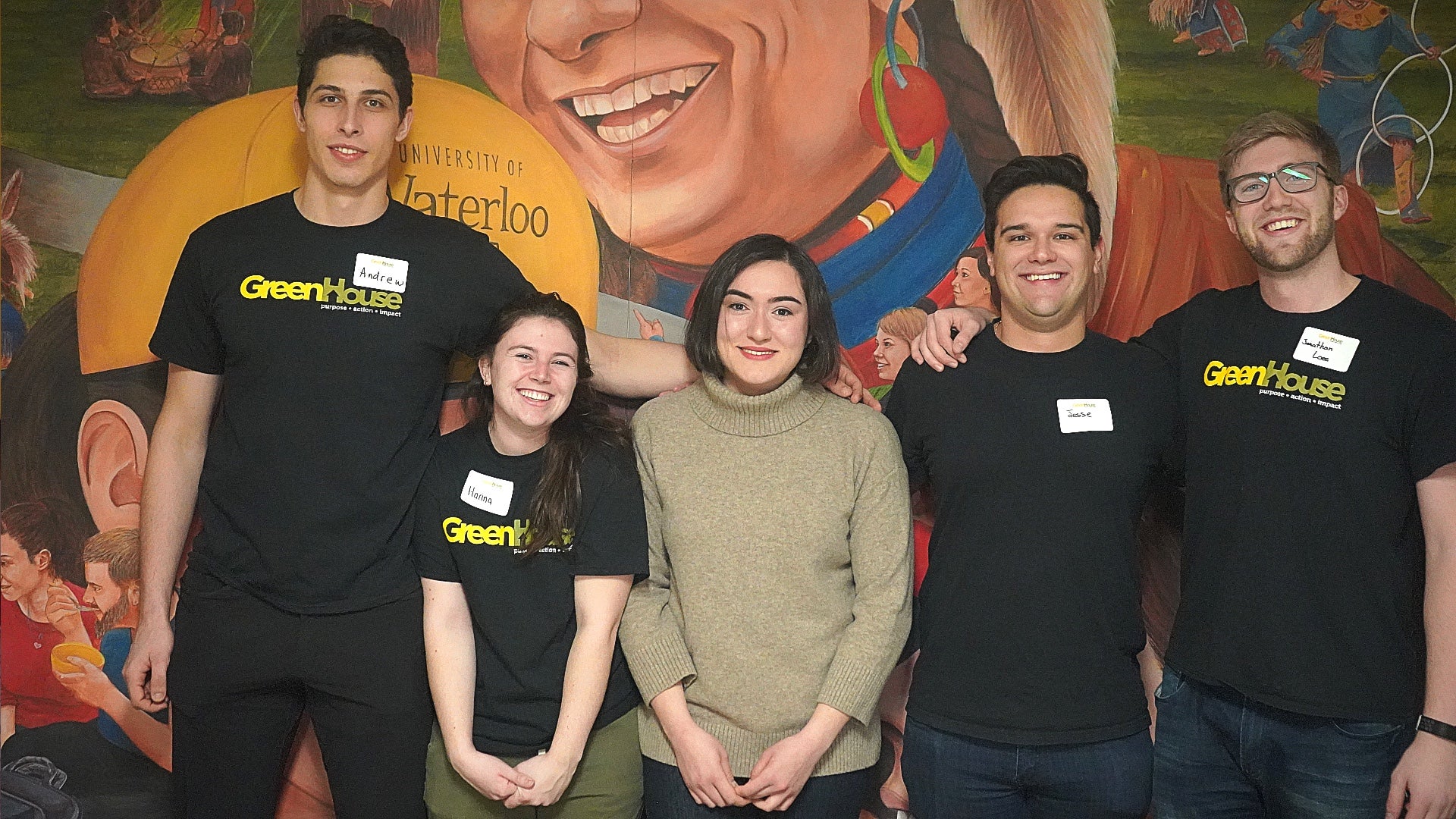As a requirement for graduating, UWaterloo engineering students are required to work in teams to apply the knowledge and skills they’ve learned to conceptualize and design a project related to their discipline.
Varsity volleyball athlete Andrew Smondulak, who is a Science and Business student, talked regularly with his teammate Jonathan Loos, a Systems Design Engineering student about capstone projects and also about the possibility of creating their own start-up. But the pair wanted any venture or capstone project to be one that solved a meaningful need in the world.
When they and their other three team members Tamilla Bunyadova, Hanna Kyowski and Jesse Young (all Systems Design Engineering students) heard about GreenHouse’s Workplace Innovation program, they thought it would be the perfect way to bring their interest in meaningful entrepreneurship to a capstone project.

Left to right: Andrew Smondulak, Hanna Kyowski, Tamilla Bunyadova, Jesse Young, Jonathan Loos
The group had a tough decision to make this past spring when GreenHouse Program Manager and Startup Coach, Brendan Wylie-Toal, sent Workplace Innovation students a list of different problems nonprofits were facing. “We thought that working on an environmental problem would be cool,” says Andrew, “but when we looked at the team we had, we quickly realized which problem we could make the largest impact on.”
The problem the group decided to tackle was the challenge of the lack of communication between acute care facilities and campuses in this region, as relates to mental health records, and more specifically safety plans for students in crisis. “What is designed to be an effective tool seems to be falling short because it relies archaic paper format. We saw potential: if we digitized this, we could solve this gap and could add so much more value to patients and health care providers.”
The group, now called Essentia Health, recently won $2500 from the Social Impact Fund which will be used to build their solution, which they plan to launch by the end of April 2020.
“The real benefit of GreenHouse,” Andrew says,” is that if you want to work on something meaningful, you can walk in without any clue of what to work on, and you will be introduced to huge list of problems. You’ll also be provided with huge resources, strong connections and great support team to take an idea to whatever you can imagine it to be. That really impressed me.”
Congratulations to Essentia Health for securing $2,500 in funding from the Social Impact Fund to further build and test its solution. Thank-you to Sanofi Genzyme for its generous support in sponsoring these funds to support youth-led innovation in the health and wellbeing space. Sanofi Genzyme’s financial contributions aim to make a positive impact on patients and communities globally.